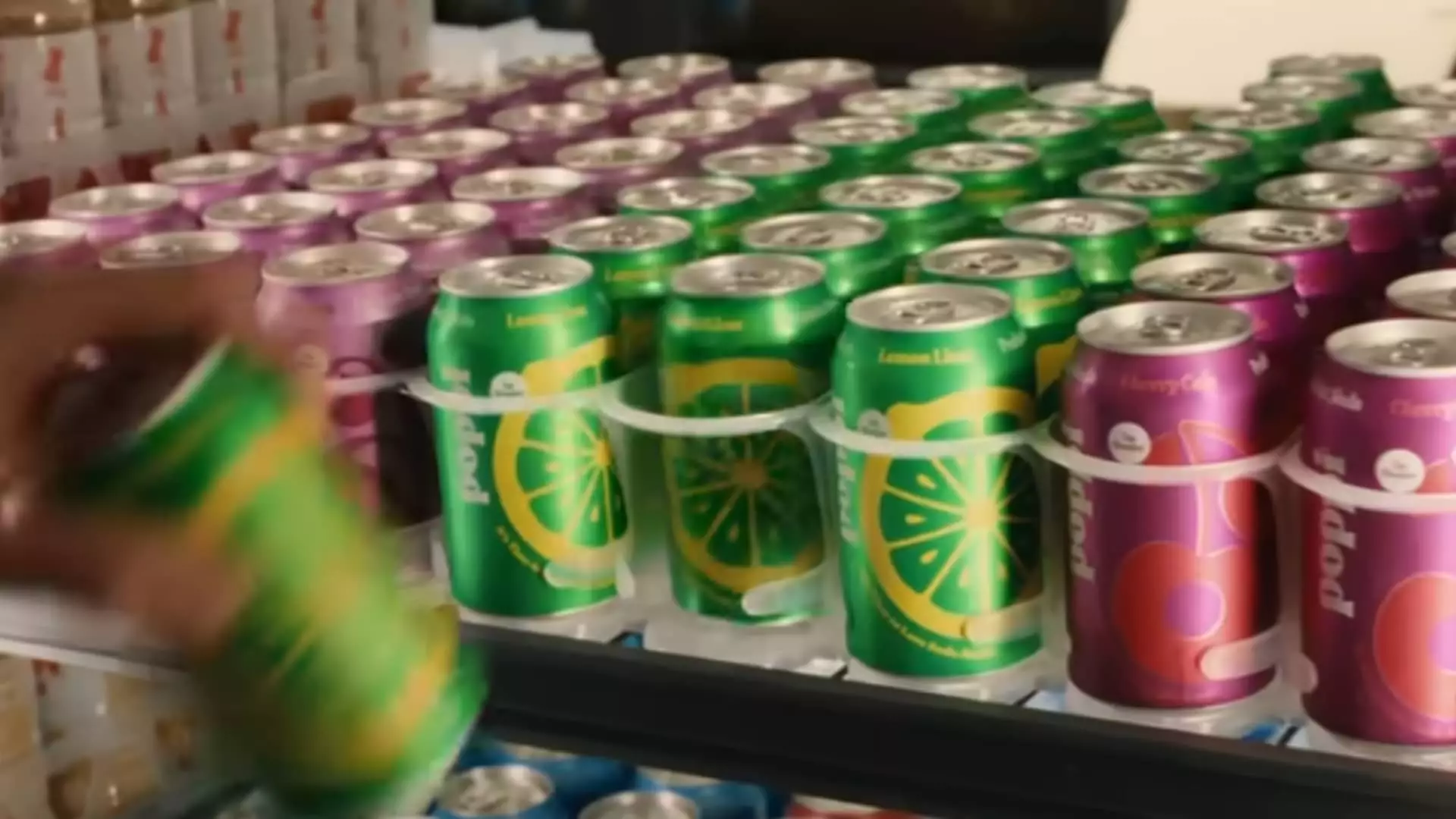In a bold maneuver that unsettles traditional soft drink norms, PepsiCo has announced its intent to acquire the burgeoning prebiotic soda brand Poppi for an eye-watering $1.95 billion. This strategic move comes amidst a significant decline in conventional soda consumption in the United States, a shift that has left industry titans scrambling to adapt. What’s particularly fascinating is how companies like Poppi and Olipop have managed to capitalize on this decline by appealing to a health-oriented demographic. Over the past five years, these new entrants have redefined not just the products consumers want but also the narrative around what soda can represent in a health-conscious society.
A Misstep in Brand Development?
Pepsi’s decision to scrap its own Soulboost line of functional sodas before purchasing Poppi raises eyebrows. Critics could argue that this demonstrates a lack of confidence in developing original brands capable of engaging modern consumers. Instead of fostering innovation, PepsiCo appears to be taking a shortcut, magnifying its reliance on existing upstarts rather than cultivating its own. Given the prebiotic category’s momentum, it seems like an intelligent acquisition in the short term, but can Pepsi really integrate Poppi into its broader ecosystem without compromising the very ethos that made Poppi so attractive in the first place?
The Price Tag and Its Implications
While the acquisition sounds impressive, the true cost to PepsiCo is lower than the headline figure suggests, thanks to anticipated cash tax benefits. The net purchase price sits at around $1.65 billion, which, in business terms, appears to be a calculated risk amidst the uncertainties inherent in the soft drink market. However, additional payments tied to Poppi hitting specific performance benchmarks introduce yet more variables into Pepsi’s financial equation. Strikingly, this kind of complex deal may detract from PepsiCo’s core mission while exposing it to backlash regarding the validity of its health claims, especially since Poppi recently faced a lawsuit alleging that its health marketing is misleading.
Behind the Hype: The Reality of Poppi’s Health Claims
For all its growth and flashiness—including a presence in the Super Bowl—Poppi’s rapid ascent is not without controversy. The brand is now engulfed in legal scrutiny over its health claims, calling into question the legitimacy of its market position. This controversy symbolizes a pervasive issue within the beverage industry: the tension between marketing savvy and genuine health benefits. In the wake of this lawsuit, one wonders whether Poppi will maintain its allure as a health-conscious choice or become embroiled in a more significant scandal that could tarnish its reputation—and ultimately affect PepsiCo adversely.
Rivalry and Market Disruption
As if the situation weren’t complex enough, rival brand Olipop has also emerged as a substantial player, securing a valuation of $1.85 billion just recently. This dynamic raises the stakes for Pepsi and its cohort as they navigate a terrain increasingly characterized by consumer skepticism and a demand for authenticity. Already, Pepsi’s foray into prebiotic sodas is framed by a broader industry upheaval, leading to questions about whether any quick fix—even one as considerable as a $1.95 billion acquisition—can truly reposition a legacy brand in an era marked by consumer demand for real health benefits.
In essence, while the eye-catching nature of the acquisition may dazzle investors and consumers alike, the deeper narrative surrounding Poppi—and Pepsi’s alignment with it—reveals a precarious balancing act between innovation and risk that could redefine the future of beverage consumption.

